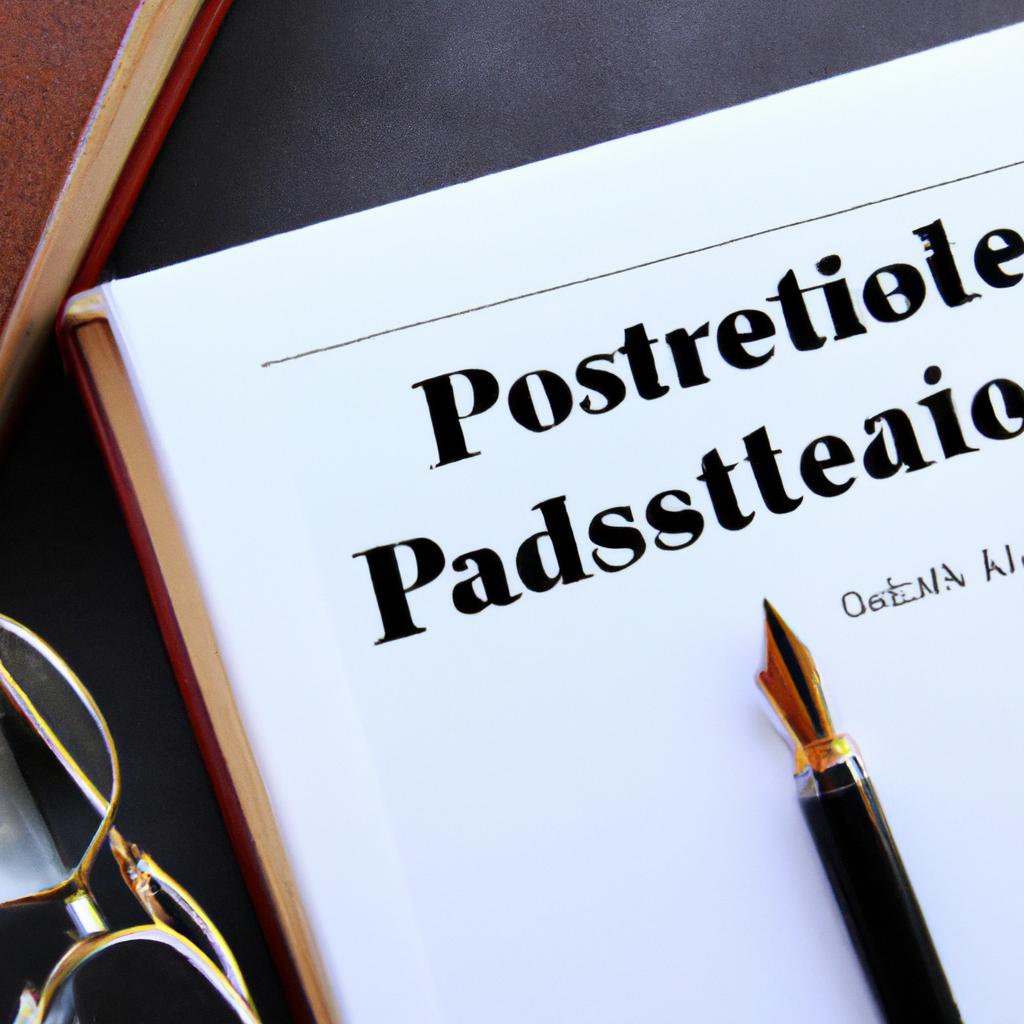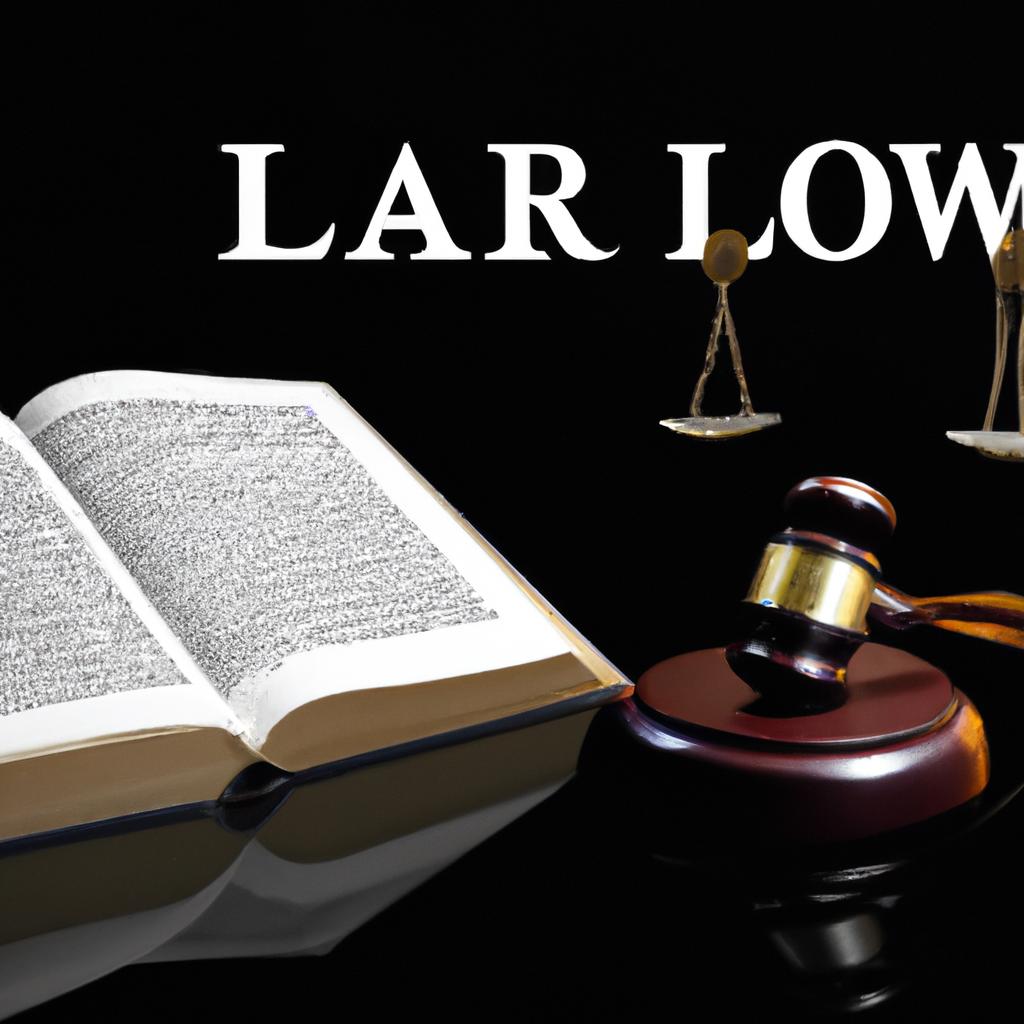In the wake of a loved one’s passing, navigating the practical and legal aspects of their estate can be a daunting and emotionally taxing process. As seasoned legal practitioners at Morgan Legal Group in New York City, we understand the complexities involved in executing an individual’s final wishes. In this article, we will provide a comprehensive checklist to guide you through the necessary steps to take when someone dies. From handling funeral arrangements to initiating the probate process, our expert advice will help you navigate the legal intricacies with confidence and ease.
– Legal Obligations and Responsibilities Upon Death
When someone passes away, there are several legal obligations and responsibilities that need to be addressed. It is important to have a checklist to ensure that everything is taken care of properly. Below is a list of key tasks that need to be completed:
- Notify the relevant authorities and institutions: This includes informing the local authorities, the Social Security Administration, banks, insurance companies, and any other relevant institutions.
- Obtain the death certificate: This document is essential for settling the deceased’s affairs. It is usually obtained from the funeral home or the vital records office in the state where the person passed away.
- Secure the deceased’s property: It is important to secure the deceased’s property, including their home, vehicles, and personal belongings, to prevent any unauthorized access or theft.
| Task | Responsible Party |
|---|---|
| Notify authorities and institutions | Next of kin or executor |
| Obtain death certificate | Funeral home or vital records office |
| Secure deceased’s property | Next of kin or executor |

– Key Documents Required for Handling a Deceased Person’s Affairs
To handle a deceased person’s affairs efficiently, it is essential to gather key documents that provide important information and legal proof of authority. These documents are crucial for navigating the complex process of settling an estate and ensuring that the deceased’s wishes are carried out. Below is a checklist of the key documents required when someone passes away:
- Death Certificate: This document is issued by the vital records office and certifies the person’s death. It is necessary for various legal and financial purposes, such as claiming life insurance benefits or transferring assets.
- Will: The deceased person’s Last Will and Testament outlines how they want their assets to be distributed. It is important to locate the original Will as soon as possible, as it provides guidance for the estate settlement process.
- Trust Documents: If the deceased had a trust, the trust documents will detail how the trust assets should be managed and distributed. It is crucial to review these documents to understand the trust’s terms and requirements.
- Power of Attorney: If the deceased appointed someone to act on their behalf through a Power of Attorney, this document may still be relevant after their passing. It is important to review the Power of Attorney to determine its scope and authority.
- Beneficiary Designations: Documents such as life insurance policies, retirement accounts, and bank accounts may have named beneficiaries. These designations will determine who receives these assets upon the deceased’s death.
- Financial Records: Gathering the deceased person’s financial records, such as bank statements, investment accounts, and tax returns, is crucial for understanding their financial affairs and liabilities.
- Property Deeds: If the deceased owned real estate, property deeds will provide information about the ownership and transfer of these assets. It is important to review these documents to determine the deceased’s property interests.
- Funeral and Burial Instructions: Any documents or instructions related to the deceased’s funeral and burial wishes should be gathered and followed accordingly. These documents may help guide the family in honoring the deceased’s wishes respectfully.
Handling a deceased person’s affairs can be a challenging and emotional process. By gathering these key documents and seeking legal guidance from experienced professionals like Morgan Legal Group, you can ensure that the estate settlement process is carried out smoothly and according to the deceased’s wishes. Contact us today for expert assistance in estate planning, probate, elder law, Wills, trusts, and more in New York City.
- Important Steps to Take When Someone Passes Away
When someone passes away, it can be a difficult and overwhelming time for their loved ones. As experienced probate lawyers at Morgan Legal Group in New York City, we understand the importance of taking the necessary steps to handle the affairs of the deceased. Here are some important steps to consider:
- Notify appropriate people: Contact close family members, friends, and employers to inform them of the passing.
- Obtain the death certificate: Secure multiple copies of the death certificate, as they will be required for various administrative purposes.
- Secure the deceased’s property: Ensure that the deceased’s home, vehicles, and other assets are secure until further arrangements can be made.
| Name | Contact Information |
|---|---|
| Funeral Home | 123-456-7890 |
| Estate Planning Attorney | 456-789-0123 |

– Understanding the Probate Process and Administration of the Estate
When a loved one passes away, there are many important tasks that need to be handled in order to properly administer their estate. To help ensure that the probate process goes smoothly, it is important to follow a checklist of important steps.
- Determine if the deceased had a Will: The first step is to locate the Will of the deceased, if one exists. This document will outline their wishes for the distribution of their assets.
- Notify relevant parties: Inform the necessary parties about the passing of your loved one, including banks, creditors, and government agencies.
- Inventory assets and liabilities: Create an inventory of the deceased’s assets and debts to have a clear understanding of the estate’s value.
Additionally, it is crucial to consult with an experienced probate attorney to guide you through the process and ensure that all legal requirements are met. At Morgan Legal Group, we specialize in estate planning and probate administration, and we are here to provide you with expert guidance and support during this difficult time. Contact us today to schedule a consultation.
Q&A
Q: What should I do immediately after someone dies?
A: The first step is to notify the authorities and the deceased person’s doctor.
Q: What legal documents do I need to gather?
A: You will need the deceased person’s will, birth certificate, marriage certificate, social security number, and any other relevant legal documents.
Q: How do I notify friends and family members?
A: It’s best to make a list of everyone who needs to be notified and reach out to them personally or through a group message.
Q: What arrangements need to be made for the funeral?
A: You will need to contact a funeral home to make arrangements for the funeral service, burial or cremation, and any other necessary details.
Q: What financial matters need to be taken care of?
A: You will need to notify the deceased person’s bank, credit card companies, and any other relevant financial institutions. You may also need to start the process of probating the deceased person’s will.
Q: How should I handle the deceased person’s belongings?
A: It’s important to secure the deceased person’s belongings and start the process of dividing them among family members or beneficiaries.
Q: What emotional support is available for those left behind?
A: It’s important to seek support from friends, family, or a counselor to help cope with the emotional impact of losing a loved one.
In Conclusion
As we navigate the difficult and emotional process of dealing with the death of a loved one, having a checklist can help us stay organized and ensure that we are completing all necessary tasks. By following the steps outlined in this article, we can focus on honoring and remembering our loved one while also taking care of the necessary practical matters. Remember, it’s okay to ask for help and seek support during this challenging time. Take things one step at a time, and know that you are not alone in this journey. And above all, take care of yourself and allow yourself to grieve in your own way.
 When someone dies, it can be a difficult and overwhelming time for their loved ones. On top of grieving their loss, there are also a number of legal and practical matters that need to be taken care of. This is where having a checklist can be helpful for those left behind. In this article, we will provide a comprehensive guide on what to do when someone dies, from notifying authorities to handling financial matters.
When someone dies, it can be a difficult and overwhelming time for their loved ones. On top of grieving their loss, there are also a number of legal and practical matters that need to be taken care of. This is where having a checklist can be helpful for those left behind. In this article, we will provide a comprehensive guide on what to do when someone dies, from notifying authorities to handling financial matters.
Notifying Authorities and Next of Kin
The first step when someone dies is to notify the relevant authorities. If the person passed away in a hospital or hospice, the staff will take care of the necessary paperwork. If the death occurred at home, you will need to call 911 or the local police department. They will determine if a medical examiner or coroner needs to be involved.
Once the authorities have been notified, the next step is to contact the person’s next of kin. This could be a spouse, parent, child, or sibling. It’s important to inform them as soon as possible so they can start making arrangements.
Obtaining a Death Certificate
A death certificate is a legal document that certifies the cause, date, and location of a person’s death. It is necessary for a number of things, such as claiming life insurance, settling estates, and closing bank accounts. In some cases, you may need multiple copies of the death certificate, so it’s best to request a few more than you think you’ll need.
Arranging for the Body
After a death, the body will need to be taken to either a funeral home or a mortuary. If the person had a prepaid funeral plan, it should be easy to make the necessary arrangements. If not, you will need to decide on the type of service and the location. You may also need to make transportation arrangements if the person is to be buried in a different location.
Funeral and Memorial Services
Funeral and memorial services are a way for friends and family to pay their respects and celebrate the life of the person who passed away. The type of service will depend on the person’s wishes and cultural or religious practices. Some people may have already expressed their wishes in their will or final arrangements, while others may leave the decision to their loved ones.
Settling Financial Matters
Dealing with the financial matters of a deceased loved one can be complicated and time-consuming. It’s important to take a systematic approach to avoid overlooking any important details. Here are some steps to follow:
1. Gather important documents – This includes the person’s will, birth and marriage certificates, insurance policies, bank statements, and other financial records.
2. Notify their employer, if they were still working – This will ensure they receive any outstanding pay, benefits, or retirement funds they are entitled to.
3. Cancel subscriptions and services – This includes phone, cable, internet, and utility services.
4. Close bank accounts and cancel credit cards – This will prevent any unauthorized charges from occurring.
5. Contact the person’s attorney – If they had one, they may have a copy of the person’s will and can help with the legal process of settling the estate.
6. Contact insurance companies – This includes life insurance, health insurance, and homeowner’s insurance.
7. Contact government agencies – Notify Social Security, Medicare, and the IRS of the person’s passing.
8. Determine the person’s debts – This includes mortgages, car loans, and credit card debt.
9. File a final tax return – This must be done by April 15th of the year following the person’s death.
10. Distribute assets – Once all debts have been settled, the remaining assets can be distributed among the beneficiaries as outlined in the will.
Grief and Emotional Support
Losing a loved one is a traumatic experience and everyone grieves differently. It’s important to take care of yourself during this difficult time. Surround yourself with supportive friends and family, seek counseling if needed, and make time for self-care. It may also be helpful to join a support group to connect with others who are going through a similar experience.
In conclusion, when someone dies, there are a number of practical matters that need to be taken care of. By following this checklist, you can ensure that all important tasks are completed and allow yourself time to grieve and heal. Remember to reach out for support when needed and take things one step at a time.

